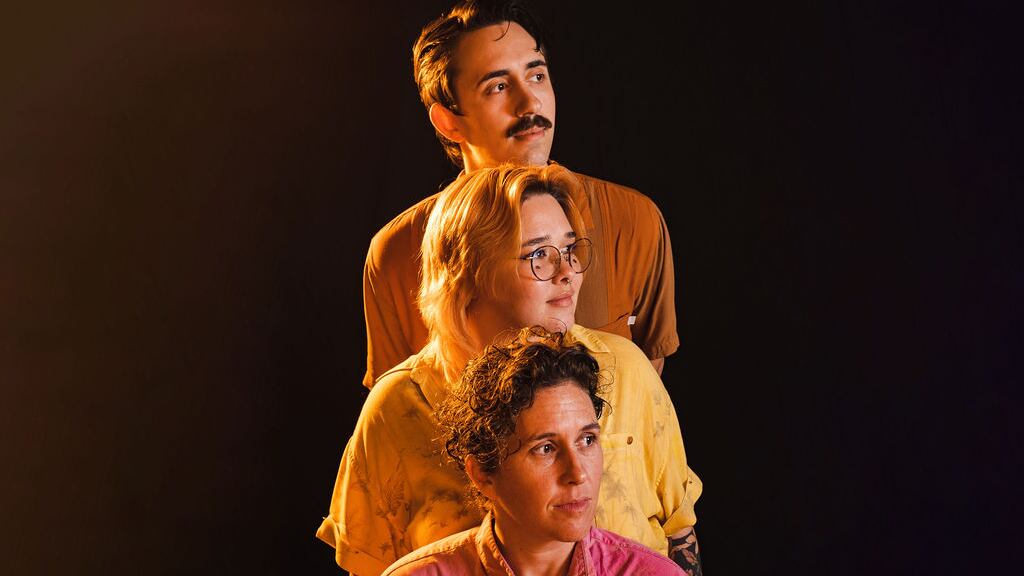For Glitterfox to be born, Solange Igoa had to meet Andrea Walker at a party in Long Beach, Calif.
“The next day, I told my girlfriend, ‘I don’t know who that was, but I gotta find that person,’” Walker says. She and her girlfriend broke up, and eventually, she and Igoa married and forged their professional partnership.
“It didn’t take any time at all,” Walker says. “I was like, ‘I write songs, you’ve got that voice. Why don’t we team up and see what we can do?’” To underscore the momentousness of the occasion, she speaks in the stentorian tones of a suave radio personality: “The rest is history!”
Glitterfox (which features Igoa on vocals, Walker on guitar and backup vocals, and Eric Stalker on bass) is one of the most successful Portland bands of the pandemic era. By blending Americana and rock into an indie-folk cocktail, they have created a singular sound that can both rouse and soothe, as fans of their ferociously emotional EP Night can attest.
“There’s always an element in the songs of going through troubles, going through struggles or challenges, but just trying to keep your head up—and trying to keep going and not give up,” Walker says. “Each song was written from just a very real place.”
Since Glitterfox was formed in 2012—back when Igoa and Walker played backyard house parties in Long Beach—they’ve toured up and down the West Coast in a van, moved to Portland, and added Stalker to the group. “Eric is very much a storyteller,” Igoa says. “I think Andrea and I tend to be a bit more ambiguous with our songwriting.”
Igoa and Walker’s work may be more enigmatic, but it draws directly from their lives. “I’m from North Carolina, and so writing folky Americana stuff, I always loved that because it made me feel like I was home,” Walker says.
Similarly, Igoa’s style is rooted in their early years. “Solange is French Basque, and so they grew up singing and learning Basque folk songs and folk dances,” Walker says. For Igoa, that means invoking what they describe as the “typically masculine-sounding,” Stevie Nicks-style timbre of Basque women they knew during childhood.
Glitterfox faced its greatest challenge when they all contracted COVID-19 in March 2020 (Walker tested positive while trying to donate plasma to the Red Cross). None of them could smell—and at the same time, Walker was losing a front tooth.
“I was like, ‘I’m falling apart!’” Walker says. “That’s what we do, though—we take the struggles and turn them into art.”
And so out of illness and despair, Night was born. Forty percent of the EP was written while the band was suffering from COVID-related symptoms, resulting in deely felt songs like “Married to the Ground” (which is about depression) and “Night,” the collection’s profoundly spiritual title track.
“I’m not super religious or anything, but I wrote it as if God or the universe was talking to me in a hard time,” Igoa says. “I feel like I get emotional when I sing a lot of songs because it’s like acting, getting into character, going back to that feeling.”
Therein lies the secret to Glitterfox’s success. Like all great performances, theirs are born of truth.
